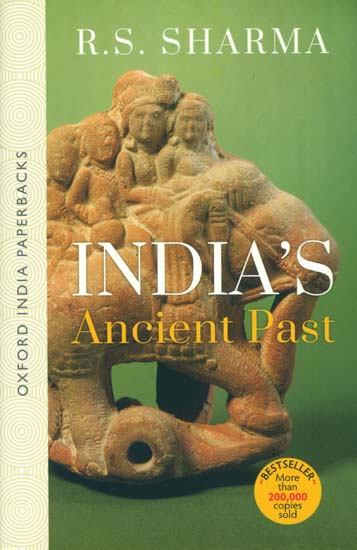
History plays a crucial role in any exam as it provides context and understanding of the present. It helps to explain how events and developments in the past have shaped the world we live in today. Furthermore, studying history helps to develop critical thinking skills, as it requires the analysis and interpretation of past events and their impact on society. Additionally, history provides a sense of perspective, allowing individuals to understand the complexity of the world and the many factors that have contributed to its development. Understanding history also helps in identifying patterns and trends, which can be useful in predicting future events.
Hence, I am providing you a list of 12 most important books which every student, historian, or simply someone with an interest in the past, must read. These books are sure to provide a captivating and enlightening reading experience.
1. "The History of Ancient India" by R.S. Sharma: This book provides a comprehensive overview of ancient Indian history, covering the Indus Valley Civilization, the Vedic period, the Mauryan Empire, and the Gupta Empire. It also delves into the social, economic, and cultural aspects of ancient India.

2. "A History of India" by Romila Thapar: This classic book covers the history of India from the Indus Valley Civilization to the end of the Mughal Empire. It is considered a seminal work on ancient Indian history and provides a detailed and nuanced understanding of the political, social, and economic developments of the time.

3. "The Wonder That Was India" by A.L. Basham: This book is considered to be one of the most comprehensive studies of ancient Indian civilization, covering the period from the Indus Valley Civilization to the rise of the Gupta Empire. It provides a detailed analysis of the political, social, and economic developments of the period, as well as the contributions of key figures such as Ashoka and Kautilya.
4. "Early India: From the Origins to AD 1300" by Romila Thapar: This book covers the history of ancient India from the earliest times to the end of the 13th century. It provides a detailed and nuanced understanding of the political, social, and economic developments of the time.
5. The History of Medieval India: From the 12th to the 18th Century" by Satish Chandra - This book covers the history of medieval India, including the rise and fall of various kingdoms and empires, as well as the impact of foreign invasions and trade.

6. "Medieval India: The Study of a Civilization" by B.N. Puri: This book provides a comprehensive and detailed account of the political, economic, social, and cultural developments of medieval India. It covers the period from 600 to 1700 AD and provides a critical analysis of the different dynasties and empires that ruled India during this period.

7. "The Mughal Empire" by John F. Richards: This book is considered a classic in the field of Mughal history. It provides a detailed account of the Mughal Empire from its origins to its decline, covering the reigns of all major Mughal emperors and the political, economic, and cultural developments of the time.

8. "The Last Mughal" by William Dalrymple: This book explores the life and fall of Bahadur Shah Zafar II, the last Mughal emperor of India, and the events leading up to the Indian Rebellion of 1857.

9. "A History of Modern India" by Bipan Chandra: This book is considered to be the definitive history of India's struggle for independence, covering the period from 1857 to 1947. It provides a detailed account of the political, social, and economic factors that led to the rise of nationalism movements in India, as well as the contributions of key figures such as Mahatma Gandhi, Jawaharlal Nehru, and Sardar Patel.

10. "The Indian National Movement: An Interpretation" by Sumit Sarkar: This book provides a detailed analysis of India's independence movement, covering the major leaders, events, and ideologies that led to India's independence from British rule.

11. "The History of India's Partition: The Making of a Muslim Nation" by Yasmin Khan - This book examines the complex and controversial events leading up to the partition of India in 1947, and the impact of this event on the nation and its people.

12.''Plassey to Partition: A History of Modern India'': It is a comprehensive book written by Sekhar Bandyopadhyay, a leading historian of India. The book covers the period from the Battle of Plassey in 1757, which marked the beginning of British rule in India, to the partition of India in 1947, which led to the creation of Pakistan.

13."India After Gandhi" by Ramachandra Guha: This book provides a comprehensive overview of India's history post-independence, covering the major events, political figures, and social movements that have shaped the country in the last 70 years.

The books recommended in this list provide a comprehensive and engaging look into various historical events and figures. From ancient civilizations to modern conflicts, these books offer a diverse range of perspectives and insights that will deepen readers' understanding of history.
No comments:
Post a Comment